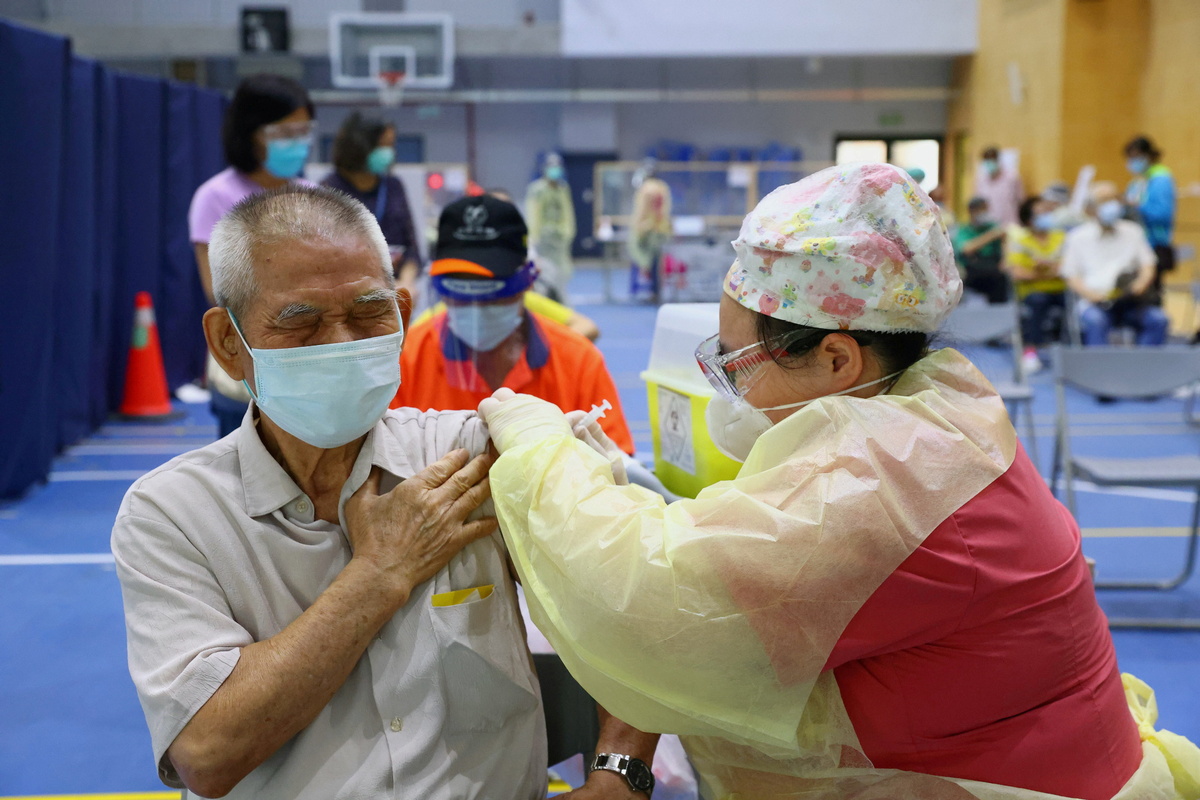Taiwan authorities criticized for poor response to virus outbreak


The poor performance of the Democratic Progressive Party administration in Taiwan in tackling the latest COVID-19 outbreak on the island has revealed its insufficient governance capacity, which has led to its declining popularity, Chinese mainland experts said.
Voters' support for the DPP has dropped from 43.1 percent in March to 28.2 percent in June due to its policies in dealing with the outbreak, according to a poll released on Monday by a public opinion foundation on the island.
Cross-Straits relations experts said that the DPP authorities have been engaging in political confrontation with the mainland to cover up its inability to obtain sufficient supplies of vaccines and the obstacles it has placed in the way of imports of vaccines from the mainland.
The recent sale of 10 million doses of vaccines from a Shanghai company to Taiwan companies proved that the DPP's claim that the mainland was blocking its access to vaccines was a lie, they said.
Shanghai-based Fosun Pharmaceutical Group signed agreements on Sunday with Taiwan-based Foxconn, Taiwan Semiconductor Manufacturing Co and a charity foundation to provide 10 million doses of mRNA COVID-19 vaccines.
The vaccines will be donated by the buyers to the disease control agency in Taiwan for local use, Fosun Pharma said on Sunday.
Shanghai Fosun signed a contract with German company BioNTech in March 2020 to participate in the research and development of vaccines, and has the exclusive rights to distribute them to the Chinese mainland, Hong Kong, Macao and Taiwan.
"We are glad to see that the vaccine, jointly developed by Fosun and BioNTech, can play a positive role in the prevention and control of the outbreak in Taiwan," said Wu Yifang, chairman and CEO of Fosun Pharma.
He said the company will work with its partners to provide safe and effective vaccines to Taiwan to safeguard the lives, health and safety of Taiwan compatriots and help the island return to normal as quickly as possible.
Foxconn founder and CEO Terry Guo said on social media that there was no guidance or interference from mainland authorities with regard to the procurement process, and the purchase was purely a commercial transaction.
Taiwan has been tackling its latest outbreak since the end of May, in which there had been more than 15,000 confirmed cases and about 740 deaths by Tuesday, according to official data.
Vaccine shortage
However, the island continues to face a vaccine shortage. The vaccination rate in Taiwan has reached about 14 percent, with 3.48 million people having received at least one shot, the island's epidemic command center said on Sunday.
Zhu Songling, a professor of Taiwan studies at Beijing Union University, said that although the United States and Japan have given Taiwan some doses of vaccine, these were far from enough to meet the island's needs and showed that these countries attach little importance to Taiwan.
Zhu said the AstraZeneca COVID-19 vaccine donated by Japan to Taiwan was not certified by the World Health Organization and was not on its emergency use list.
Some Taiwan doctors staged a protest on Saturday in which they encircled the office building of Taiwan leader Tsai Ing-wen, criticizing her administration for refusing to buy enough vaccines and for the subsequent loss of life, the island's media reported.
To resolve the vaccine shortage on the island, mainland authorities and social groups have repeatedly offered to help, but this has been rejected by the island's administration, which has also been blocking counties, cities and companies on the island from buying vaccines from the mainland.
Zhu said the DPP authorities had rejected vaccines from Shanghai Fosun because these were related to the mainland, and they wanted to demonize the mainland through all kinds of lies in order to divert the attention of the people on the island from the severe impact of the latest outbreak.
"Now they are unable to bear the pressure from people's growing anger due to the vaccine shortage and had to allow some businesses to buy a certain amount of vaccines from the mainland," he said.
Bao Chengke, a professor of cross-Straits relations at the Institute for East Asian Studies in Shanghai, said, "If the deal had been reached earlier, there wouldn't have been so many deaths in Taiwan.
"The island's authorities dealt with the epidemic issue from a political perspective and with a very narrow attitude based on creating confrontations with the mainland, which ultimately led to a greater price being paid by the people of Taiwan," Bao said.
"The outbreak in Taiwan has exposed the inadequacy of the management and governance capacity of the DPP administration," he said, adding that if the DPP's current epidemic policies continue, people's dissatisfaction and disappointment will be even stronger and they will vote in next year's local elections for parties opposed to the current administration.
- Norway's seafood exports hit record in 2025, China emerges as top three market
- Crucial tower of Shenzhen-Jiangmen Railway completed, marking significant milestone
- Hangzhou selected as a 'Zero-Waste Cities' by the UN
- China backs Tanzania's plan to double exports by 2030
- China leads renewable energy jobs growth as Africa seeks green partners
- Jilin—1 GF07 satellite transmits high-resolution photo of Harbin's winter wonderland




































